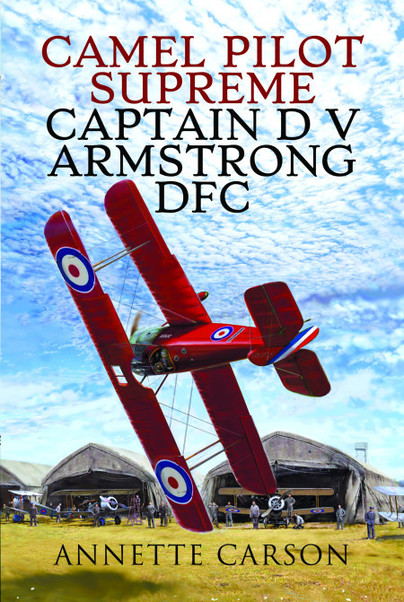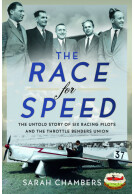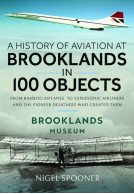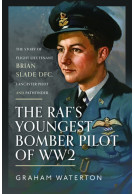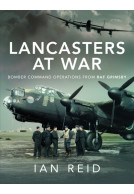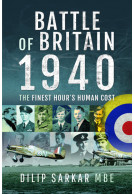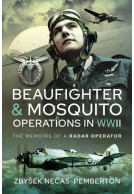Flight Lieutenant Thomas 'Tommy' Rose DFC (Hardback)
WWI Fighter Ace, Record Breaker, Chief Test Pilot - His Remarkable Life in the Air
Imprint: Air World
Pages: 328
Illustrations: 100 black and white illustrations
ISBN: 9781526783820
Published: 2nd February 2023
(click here for international delivery rates)
Need a currency converter? Check XE.com for live rates
| Other formats available - Buy the Hardback and get the eBook for £1.99! | Price |
|---|---|
| Flight Lieutenant Thomas 'Tommy'… eBook (19.6 MB) Add to Basket | £6.99 |
Flight Lieutenant Thomas ‘Tommy’ Rose, a First World War fighter ace, was a pioneer of private flying. He installed and managed the UK’s first fuel pump for private aviation at Brooklands before becoming Sales Manager for Phillips and Powis Aircraft Ltd. The chief flying instructor at several early flying schools, Tommy became the Chief Test Pilot for Miles Aircraft and was the winner of air races and pageants. He was undoubtedly a pilot who could always be relied on to amaze the onlookers with his fast, accurate stunts and low-level flying.
Mentioned in Despatches in 1916 and awarded the DFC in 1918, Tommy was attacked in his aircraft several times, yet his astonishing ability at the controls of his aircraft enabled him to land without serious injury. By the time of the Armistice, Tommy had been credited with eleven ‘kills’.
He continued to demonstrate these skills after the war and though this true trailblazer was widely known in his glory days during the early part of the twentieth century, little is remembered about him today. Yet Tommy Rose achieved the most incredible feats of aviation and was considered one of the finest pilots of his era, completing over 11,200 flying hours up to 1949.
In the 1930s, Tommy took the Imperial Airways route through East Africa, to set up a new world record on the UK to Cape Town passage, beating Amy Mollison (Johnson) who took the shorter course down the west coast. He also won the King's Cup Air Race in 1935.
Tommy flew many of the early RAF fighters from Maurice Farman to the Spitfire Mk.IX, and, from late 1939, when he was appointed Chief Test Pilot for Phillip & Powis Aircraft Ltd at Woodley (forerunners of Miles Aircraft Ltd), he test flew all Miles monoplane training and target towing aircraft, leaving in January 1946. His last position was as General Manager of Universal Flying Services Ltd at Fairoaks Aerodrome in Surrey.
The result of decades of research by the author, through this book the life and adventures of one of history’s most accomplished and daring aviators can finally be told.
"...this book certainly allows his unique contribution to be recognised."
Aviation World - Autumn 2023
"I would not hesitate to recommend this book, everyone should learn more about Flight Lieutenant Tommy Rose DFC & his passion for Aviation!"
Allied Air Force Research
Read the full review here.
"The book is well written, in clearly defined sections and includes many quotations from contemporary publications and, although Rose’s time in the RFC merits fewer than forty pages, proved an interesting read none-the-less."
Cross and Cockade - No. 54/2
About Sarah Chambers
SARAH CHAMBERS was born in 1952 into the Toogood family, a well-known Hampshire family who founded Toogood & Sons in 1815 based at Millbrook, Southampton. She qualified as a Registered Nurse in the 1970s and spent the next ten years working in Intensive Care, Accident and Emergency and Gynaecology where she became a Nursing Sister. In the 1980s she helped set up an Environmental Control Company for Horticulture. In the 1990s, taking a completely different career choice, Sarah ended her working life as a Company Secretary at a Point of Sale, design and manufacturing company based in the East Midlands, finally retiring in 2007. Sarah has settled in Alderney, the island Tommy Rose loved so much with her husband Brian.
Camel Pilot Supreme Captain D V Armstrong DFC (Hardback)
In aviation’s pioneering days the best and bravest airmen pushed the boundaries of flight in all dimensions and attitudes. When aeroplanes went to war this exploratory art, now known as aerobatics, was called ‘stunting’ in breezy RFC slang. Initially forbidden as foolhardy, its importance for survival soon became paramount in the life and death mêlées of dogfighting. But pilots still delighted in the joy and exuberance of aerobatting for its own sake, and they recognized a master of that very special skill in young D’Urban Victor Armstrong, whose displays were nothing short of electrifying.…
By Annette CarsonClick here to buy both titles for £37.50








